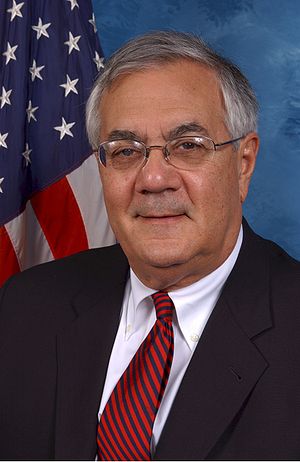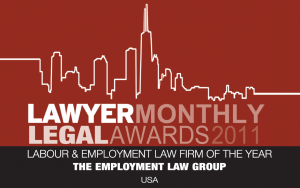Whistleblower Law Blog
Genentech Pays $20 Million to Settle Off-label Marketing Whistleblower Lawsuit
Genentech agreed to pay $20 million to settle a recent False Claims Act whistleblower lawsuit – $5.7 million of which is being paid to whistleblower John Underwood who initiated the lawsuit. Underwood alleges Genentech pressured its sales representatives to market off-label uses of Rituxan, a drug approved in 1997 to treat non-Hodgkin’s lymphoma.
Pharmaceutical laws and regulations permit physicians to prescribe drugs for off-label, unapproved uses; however, drug companies such as Genentech are not permitted to market those unapproved or off-label uses. According to the lawsuit, Genentech marketed Rituxan to treat chronic lymphocytic leukemia, atoimmune hemolytic anemia, and rheumatoid arthritis – all of which constitute off-label uses of the drug.

OSHA Sues Packaging Manufacturer for Whistleblower Violations
The U.S Department of Labor’s Occupational Safety and Health Administration (OSHA) is suing RockTenn Corporation, a consumer packaging manufacturer based in Norcross, Georgia for allegedly violating whistleblower protection laws at its Fernandina Beach plant. The lawsuit alleges that an employee at the plant had repeatedly raised serious and credible safety concerns with managers, and that those managers ignored the employee’s concerns.
On June 1, 2009 the employee called the local OSHA office and relayed his continued safety concerns regarding plant operations. RockTenn suspended the employee on June 18 and then terminated him on June 23 for allegedly giving inaccurate and untruthful testimony during an internal investigation. OSHA concluded that the company had unlawfully and intentionally terminated the worker’s employment for engaging in activity protected by the Occupational Safety and Health Act.
Teresa Harrison, OSHA’s acting regional Administrator in Atlanta stated:
“Employees have the congressionally-mandated right to engage in safety-related matters at their workplace, including participating in accident investigations and contacting OSHA at any time. We will hold employers accountable for limiting or deterring any employee who exercises these rights.”
The lawsuit asks the court to order remedies that include reinstating the employee; paying back wages and benefits; paying punitive and compensatory damages; and expunging the employee’s personnel records with respect to the matters at issue in the case. The suit also requests a permanent injunction against future violations of this law by the employer.
The Employment Law Group® Managing Principal R. Scott Oswald Quoted in Medical Practice Compliance Alert Regarding Illegal Medicare Kickbacks
R. Scott Oswald, Managing Principal of The Employment Law Group® law firm, was quoted in Medical Practice Compliance Alert, a biweekly newsletter aimed at assisting physicians with Medicare compliance so they do not run afoul of the Medicare rules and regulations, leading to charges of abuse or even fraud.
Responding to questions regarding a whistleblower lawsuit alleging that United Healthcare and its subsidiary, AmeriChoice New Jersey, provided illegal kickbacks in violation of the False Claims Act, Mr. Oswald explained that such activity is “not an isolated incident” and that Medicare is aware of it.
The article noted that accepting money as an incentive to enroll patients in Medicare-managed care plans may constitute a violation of the anti-kickback portions of the False Claims Act, even though a physician hasn’t directly billed Medicare.
In the publication, Mr. Oswald recommends that medical practices refuse to accept inducements if approached by a private payer representative, because “even small [payments] are a violation.”
The article, entitled “Beware of Private Payers That Offer Deals Too Good to Be True – Result Could Be Fraud”, appeared in the October 3, 2011 edition of the newsletter.
For more information or to subscribe to Medical Practice Compliance Alert, visit www.decisionhealth.com/mca.
OSHA Reinstates Heartland Transportation Inc. Whistleblower
Last week the U.S. Department of Labor’s Occupational Safety and Health Administration (OSHA) found that Heartland Transportation Inc., a contract mail carrier for the U.S. Postal Service, violated the whistleblower provisions of the Surface Transportation Assistance Act when it fired a driver for reporting safety hazards. OSHA ordered Heartland to reinstate the driver and pay him $62,090 in compensatory and punitive damages plus more than two years of back wages, interest, benefits, and reasonable attorney’s fees.
According to OSHA, the employee made several complaints about recurring mechanical failures in trucks and refused to drive those trucks which had recurring mechanical failures. Heartland responded to the complaints by removing the driver from its schedule and then terminating him when he met with Heartland management to discuss his schedule changes.
After his termination, the driver filed a whistleblower complaint with OSHA. In addition to reinstatement and economic damages, OSHA ordered Heartland to expunge any adverse references from the driver’s personnel records and to post notices and fact sheets for employees to inform them of their rights under the STAA.
Dodd-Frank Act Co-Author Rep. Barney Frank to Retire after Current Term

This week Rep. Barney Frank (D-MA) announced that he would not seek a 17th term in office and would retire from the House of Representatives at the end of his current term. Rep. Frank served as the chairman of the House Financial Services Committee from 2007 to 2011 and co-authored the landmark Dodd-Frank Wall Street Reform and Consumer Protection Act, which was signed into law in 2010.
Rep. Frank is also well-known for his role in the passage of consumer rights legislation such as the Credit Cardholders’ Bill of Rights Act of 2008 and his activism on behalf of equal employment rights. Rep. Frank repeatedly introduced the Employment Non-Discrimination Act (ENDA) in the House and advocated for the bill’s adoption, which would prohibit workplace discrimination against employees on the basis of their sexual orientation or gender identity.
The Dodd-Frank financial reform law contains several whistleblower provisions designed to increase disclosure of fraudulent financial schemes and to protect whistleblowers from retaliation by their employers. The Employment Law Group® law firm attorneys have substantial experience litigating whistleblower retaliation claims on behalf of employees and, as leaders in the field of whistleblower protection, have authored articles in various professional publications on the Dodd-Frank reforms since the law went into effect last year:
- “New Tools to Combat Whistleblower Retaliation,” Taxpayers Against Fraud Education Fund Quarterly Review, Vol. 57 (October 2010).
- ”Whistleblower Provisions Of The Dodd-Frank Act,” Law360 (July 20, 2010)
Marine Corps Whistleblower Has Top-Secret Security Clearance Reinstated
Earlier this month, the Navy Department in charge of security clearances reinstated the top secret security clearance of Franz Gayl, a civilian science and technology advisor for the Marine Corps. Gayl was placed on administrative leave for criticizing military leaders and allegedly stealing classified information. According to the Associated Press:
Beginning in 2007, Gayl accused the Marine Corps of gross mismanagement for failing to answer the call in 2005 for heavy-duty trucks called MRAPs (M-raps) that could withstand roadside bombs in Iraq. The trucks would eventually be delivered in large numbers to all of the military services and were credited with saving thousands of lives. Gayl also said requests from commanders in the field for other key technologies that could help troops disperse crowds and detect explosives were slow to be delivered because of flaws in the acquisition system and internal disputes over money.
Gayl was harassed and retaliated against by his supervisors, including being accused of stealing Marine Corps property, after coming forward with his allegations. Gayl’s supervisors accused him of inserting an unsecured flash drive into his work computer without authorization. However, there were no witnesses or evidence that he did any of the acts of which he is accused. In October 2010, the Marine Corp suspended Gayl’s security clearance and placed him on paid administrative leave, facing indefinite suspension.
Earlier this month, a Navy Department office in charge of security clearance determinations reinstated Gayl’s top secret security clearance, which voided his suspension and allowed him to return to work.
DCAA Whistleblower Promoted After Enduring Years of Retaliation
The U.S. Office of Special Counsel (OSC) announced its conclusion last week that the Defense Contract Audit Agency (DCAA) violated the Whistleblower Protection Act when it retaliated against Diem-Thi Le for blowing the whistle on fraudulent DCAA practices.
Ms. Le worked for the DCAA as a Senior Auditor for 17 years. In September 2005 Le was performing a routine audit when, according to her statement before the Senate Committee on Homeland Security and Government Affairs, she found “that the accounting system was inadequate in part and, as a result, the contractor was misallocating and mischarging costs to the Government.” Le reported this discrepancy to her supervisor; however, the DCAA ignored her findings and altered them in favor of the contractor. Le contended that supervisors approved findings of compliance not supported by audit work papers or simply changed or deleted findings of noncompliance, because DCAA operated on a metrics-oriented culture, focusing on the quantity of audits performed rather than the quality of the audits.
On November 13, 2005, Ms. Le filed a complaint with the Department of Defense Office of Inspector General (OIG) alleging that DCAA violated the Generally Accepted Government Auditing Standards (GAGAS). According to the U.S. Office of Special Counsel, Le subsequently made the same allegations to the U.S. Government Accountability Office (GOA) and the Defense Criminal Investigative Service (DCIS). However, due to the number of complaints OIG was processing, Le’s complaint was erroneously referred back to DCAA managers.
The OSC executive summary states:
Once DCAA supervisors came to believe that Le made the disclosures about [DCAA’s Santa Ana Branch Office’s] auditing practices, they took a series of retaliatory actions against her. They denied her a cash award for the performance year ending June 30, 2006, although she had received an outstanding performance rating. Then, they lowered Le’s performance ratings in 2007 and 2008 to fully successful, although she had received outstanding performance ratings in each of the four preceding years. They also failed to give Le performance awards in 2007 and 2008.
The OSC conducted a two year investigation and determined that DCAA “engaged in a pattern and practice of retaliation against Ms. Le for her disclosures.” The OSC determined that DCAA must take full corrective action, which includes changing Le’s performance ratings to the highest level of achievement, awarding her retroactive performance awards, and lifting a gag order that had been imposed on her. DCAA also offered Le a promotion and the officials that retaliated against Le either reassigned or were disciplined.
Lawyer Monthly Names The Employment Law Group® its 2011 Labor & Employment Law Firm of the Year
Lawyer Monthly has selected The Employment Law Group® law firm as its 2011 Labor & Employment Law Firm of the Year. Lawyer Monthly is an international legal publication that tracks legal news across many different practice areas and jurisdictions around the world. This month’s edition of Lawyer Monthly lists the publication’s Law Firm of the Year recipients, including The Employment Law Group® law firm.
Lawyer Monthly makes selects award recipients based on a number of criteria. The selection process includes a comparative review of nominated firms’ recent activities to their industry peers and also firms’ involvement in significant legal cases. Additionally, Lawyer Monthly considers the degree of recognition a firm has among its peer group, the number of nominations a firm receives, and other awards and positive reviews that the firm has received.
The Employment Law Group® law firm is proud to accept this recognition of the results the firm has achieved for its clients and its commitment to advancing the rights of employees and whistleblowers in the U.S. and abroad.
SEC Uncovers Millions Lost in D.C. Area Ponzi Scheme
The Securities and Exchange Commission (SEC) charged North Bethesda resident Garfield M. Taylor and his associates with running a multi-million dollar Ponzi scheme in which he promised investors annual returns of about 20 percent with little or no risk. Instead, Taylor lost investors money on highly risky options and used funds from new investors to pay the interest promised to other investors.
According to the SEC, Garfield collected more than $27 million from investors between 2005 and 2010. Any whistleblowers who reported Garfield’s Ponzi scheme to the SEC would likely be eligible for an award under the SEC’s Whistleblower Award Program, which was established following the recent financial crisis that lead to the uncovering of the multi-billion dollar Bernard Madoff Ponzi scheme.
Related articles
- Post-Madoff, a Greater Awareness of Ponzi Schemes (dealbook.nytimes.com)
US Seeks Damages from Allied Home Mortgage for Alleged Lending Fraud
One of the nation’s largest privately held mortgage companies, Allied Home Mortgage Corporation (Allied), and two of its top executives, CEO Jim Hodge and Executive VP Jeanne Stell, are facing scrutiny for providing false loan certifications to the Department of Housing and Urban Development (HUD). Peter Belli, a former regional manager at Allied, filed suit against his former employer under the False Claims Act and the Financial Institutions Reform, Recovery and Enforcement Act of 1989 (FIRREA). The government, through U.S. Attorney for the Southern District of New York, Preet Bharara, joined Belli and others in claiming that Allied lied about its compliance with HUD regulations.
In the complaint, Belli asserts that Allied made many loans through various “shadow” branches that were not HUD-approved and lacked proper quality control. Allied would then “submit those loans to HUD using one of the unique branch identification numbers (“HUDIDs”) assigned to a HUD-approved branch.” Then, “HUD endorsed these loans for insurance based on false certifications that the loans were originated in compliance with HUD requirements, including, most fundamentally, that the loans originated from HUD-approved branches.” To maintain this ‘culture of corruption’ at Allied, the complaint states that Hodge and others threatened senior management with termination, aggressively monitored employees’ e-mail communications, and even silenced former employees by threatening legal action.
The federal government claims that nearly 1 in 3 of the HUD-insured loans Allied made between 2001 and 2010 went into default because of Allied’s reckless lending practices. These defaults reportedly created more than $834 million in insurance claims and forced thousands of borrowers out of their homes while Allied earned millions of dollars. Another 2,509 loans underwritten by Allied are currently in danger of default, which may result in additional losses estimated at $363 million.
The government is seeking triple damages and civil fines for Allied’s alleged fraud and is seeking an injunction to stop Allied from making any further loans out of its undisclosed branches.



